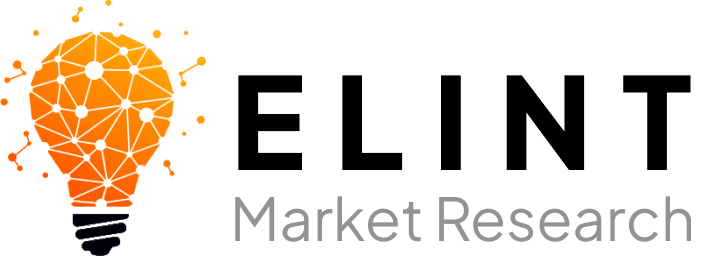DESCRIPTION
Solar PV Procurement Market Size
According to ELINT Market Research’s latest analysis covered in the solar PV procurement market research report, preparedness is in place for the growth of the solar PV procurement market at a good pace between 2024 and 2030. Solar PV is advancing faster than ever: global solar capacity additions are projected to be about 250 GW this calendar year. The growth of virtually 108 GW of new operational PV is one of the most remarkable facts regarding China’s contribution during 2022, which is a noble commitment to augment national solar capacity. The application of such capacity is nearly double that of 2021, which is 55 GW. That reflects how aggressive policies in China are putting up with climate-friendly goals and attaining progressive renewable energy. The growing demand for solar power, primarily driven by these climate objectives, will resonate as a positive note for the Solar PV market as investments in solar technology rise from nations and corporations.
With the data-driven trend, BloombergNEF reports that corporations signed a record-setting 31.1 GW through PPAs of clean energy in 2021, considerably more than their 2020 activity of 25.1 GW. Of those purchases, 65% were in the United States, with significant deals led by technological heavyweights. More than 137 companies from 32 countries pledged to clean energy contracts in 2021, further strengthening this emerging corporate activity.
Key to guiding the trend has been corporate sustainability pledges. A record 67 companies joined the initiative in 2021, pledging to secure 100% of their electricity needs from renewables by 2050 for their business operations. The membership has now reached 355 companies in 25 countries, with over 60% having an international presence, thus pointing to a global commitment to sustainable power. These developments paint a strong future for the solar PV procurement market.
Market Definition
The Solar PV Procurement Market includes activities, processes, and systems for acquiring solar photovoltaic (PV) systems and constituent parts. Considering its contribution to the renewable energy debate, this market is important for sourcing solar panels, inverters, mounting structures, and other critical complementary equipment. Key activities within the sector include supplier selection, contract negotiation, and logistics management for delivering these parts to the installation sites.
Solar PV Procurement Market Drivers
- Sustainable Energy Sources
Raising global consciousness about climate change and the need to maintain green energy sources is a significant consideration. Governments globally are taking measures to encourage the use of solar energy through policies, tax credits, and subsidies.
- Rising Energy Costs
High energy spending and the urge toward energy independence are some of the significant encouragements for investment in solar photovoltaic systems, whether for residential or commercial uses.
Solar PV Procurement Market Challenges
- Fluctuating Raw Material Prices
The high upfront investment in solar PV systems will have a significant overall cost on the solar components resulting from these funds.
- Supply Chain Disruptions
Disruptions to supply lines, such as those experienced in the COVID-19 pandemic, could pose a big problem. Changes in regulations and policies may bring several uncertainties that impact market stability.
Solar PV Procurement Market Opportunities
- Shift towards Renewable Energy
With the rise of renewable energy worldwide, significant prospects for expansion arise, mainly in emerging markets where solar adoption is still nascent.
- Technological Breakthroughs
Technological advances, such as new and better solar cells and energy storage solutions, can boost the reliability of solar PV systems.
Solar PV Procurement Market Segmentation
- The solar PV procurement market research report classifies the market based on type, classifying it into crystalline silicon, thin film, and other technologies.
- In terms of applications, the solar PV procurement market research report divides the market into residential, commercial, industrial, and utility-scale installations.
- As per end-users, the solar PV procurement market research report segments the market into individual homeowners, large corporations, and government entities.
Regional Outlook of the Solar PV Procurement Market
The regional dynamics of the Solar PV market vary significantly. North America and Europe are mature markets with well-developed infrastructures and supporting policies that have been quite encouraging toward the diffusion of solar energy. The Asia-Pacific region is also growing fast, with rising investments in renewable energies and central manufacturing locations for solar components. Latin America, the Middle East & Africa have a huge potential to become burgeoning markets rich in solar resources with increasing energy demands.
Cost Component in the Solar PV Procurement Market
A solar PV market has a cost component consolidated by several elements, such as the price of solar panels, inverters, mounting systems, the balance of system components, installation labor, and maintenance. Solar panels have an appreciable share of the cost owing to technology type, efficiency, and manufacturing processes in their costing. Life-cycle maintenance and operational costs have also become imperative contributors to solar PV systems’ long-term performance and reliability.
Engagement Strategies in the Solar PV Procurement Market
Engagement strategies for the solar PV market include building solid relations with suppliers and employing digital tools to streamline procurement activities. Long-term partnerships will ensure reliable suppliers who support a steady supply of quality components.
Contract Period in the Solar PV Procurement Market
The contract period may vary due to the size and complexity of the particular project. A small-scale one might take the form of a short-term contract, whereas a larger-scale utility might exhibit long-term contracts. Long-term contracts, therefore, usually come with provisions of maintenance and performance guarantees to assure that the solar PV systems are reliable and efficient over their operational life.
Negotiation Factors in the Solar PV Procurement Market
Price, quality, delivery timelines, warranty terms, and terms for after-sales support are among the negotiation determinants in the solar PV procurement market. Price negotiation is vital because huge investments are required at the purchase level of solar PV systems. Competitive pricing is to be conjured at the end of buyers, which does not portend a quality and performance compromise in the offer.
Leading Players in the Solar PV Procurement Market
The solar PV market has some vital leading players with numerous contributions, as their critical dominance and dealings have significantly led to growth and development. Nowadays, key companies include Dominion Energy, Alder Energy, Solar Nation, Symbior Solar, EDP Renewables, and Enel Green Power, which are currently active in the world’s expansion of solar energy capacity.

